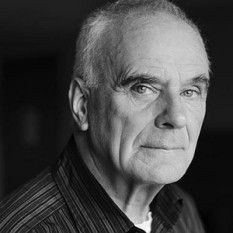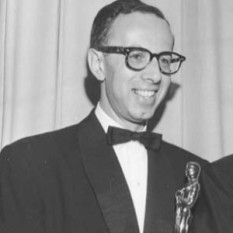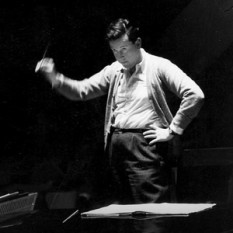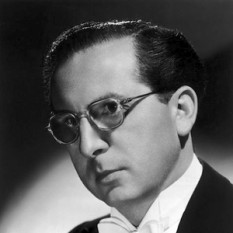Sir Richard Rodney Bennett, CBE (29 March 1936 – 24 December 2012) was a British composer renowned for his film scores and his jazz performance as much as for his challenging concert works. He was based in New York City from 1979.
As one of Britain’s most respected and versatile musicians, Bennett produced over two hundred works for the concert hall, and fifty scores for film and television, as well as having been a writer and performer of jazz songs for fifty years. Studies with Boulez in the 1950s immersed him in the techniques of the European avant-garde, though he subsequently developed his own distinctive dramato-abstract style. In later years he adopted an increasingly tonal idiom.
Despite his early studies in modernist techniques, Bennett's tastes were catholic, and he wrote in a wide range of styles, being particularly fond of jazz. Early on, he found success by writing music for feature films, although he considered this to be subordinate to his concert music. Nevertheless, he continued to write music for films and television; among his best-known scores are the Doctor Who story The Aztecs (1964), Far from the Madding Crowd (1967), Nicholas and Alexandra (1971, for which he was nominated for an Academy Award), Murder on the Orient Express (1974), Enchanted April (1992) and Four Weddings and a Funeral (1994). He was also a prolific composer of orchestral works, piano solos, choral works and operas. Despite this eclecticism, Bennett's music rarely involves crossover of styles.Daryl Runswick writes: Richard Rodney Bennett could hardly have designed his career better to alienate critics in every one of the fields he was so talented in. Classical critics disdained him as a jumped-up film composer, jazzers – players and critics alike – wrote him off as a cabaret artist, and film producers only turned to him when they wanted something self-consciously "highbrow". His jazz was indeed very old-fashioned: he fell in love with the hybrid Basie/Mel Tormé style of the 1950s when he was young, and took no account of later developments. But in everything he did he was a consummate craftsman and within the styles he espoused his works have enormous content and emotional punch.
He was a cultured gay man and every aspect of his creativity was defined by elegance. He would not go for strong avant-garde statements in any genre – it was contrary to his very core. He wanted, and achieved, a refined style in both his music and his life: that is why he went to New York, and was so happy there.
Richard was extremely important to me as a mentor and an influence. As the former he encouraged me to compose concert music when everyone else was striving to keep me writing pop songs and for TV. An orchestral piece I submitted in 1973 to a competition did not win, but, as one of the ajudicators, he told me afterwards that he admired it and told me how to promote it.
Later that year when I was in despair because I could not decipher a book by Boulez, I phoned him, almost in tears. He reasoned me out of it and set me on the path to renewed self-belief. He had co-translated the book and knew its mixture of insights and utter impenetrability. In my arrangements for The King's Singers, Richard's work for them was a major influence. Over the years I mentally "ran every arrangement past him" before sending it off.
• Richard Rodney Bennett, composer, pianist and singer, born 29 March 1936; died 24 December 2012
.
All albums
You can find information through the best music search engine - Muzlan.top 😊All materials on request "Richard Rodney Bennett" are available on page Richard Rodney Bennett
Yes of course. You can listen tracks on the page Richard Rodney Bennett
Yes of course. You can download tracks on the page Richard Rodney Bennett
This page is found by queries: Richard Rodney Bennett track minus, Richard Rodney Bennett mp3 download, Richard Rodney Bennett flac, Richard Rodney Bennett free download, Richard Rodney Bennett songs download




